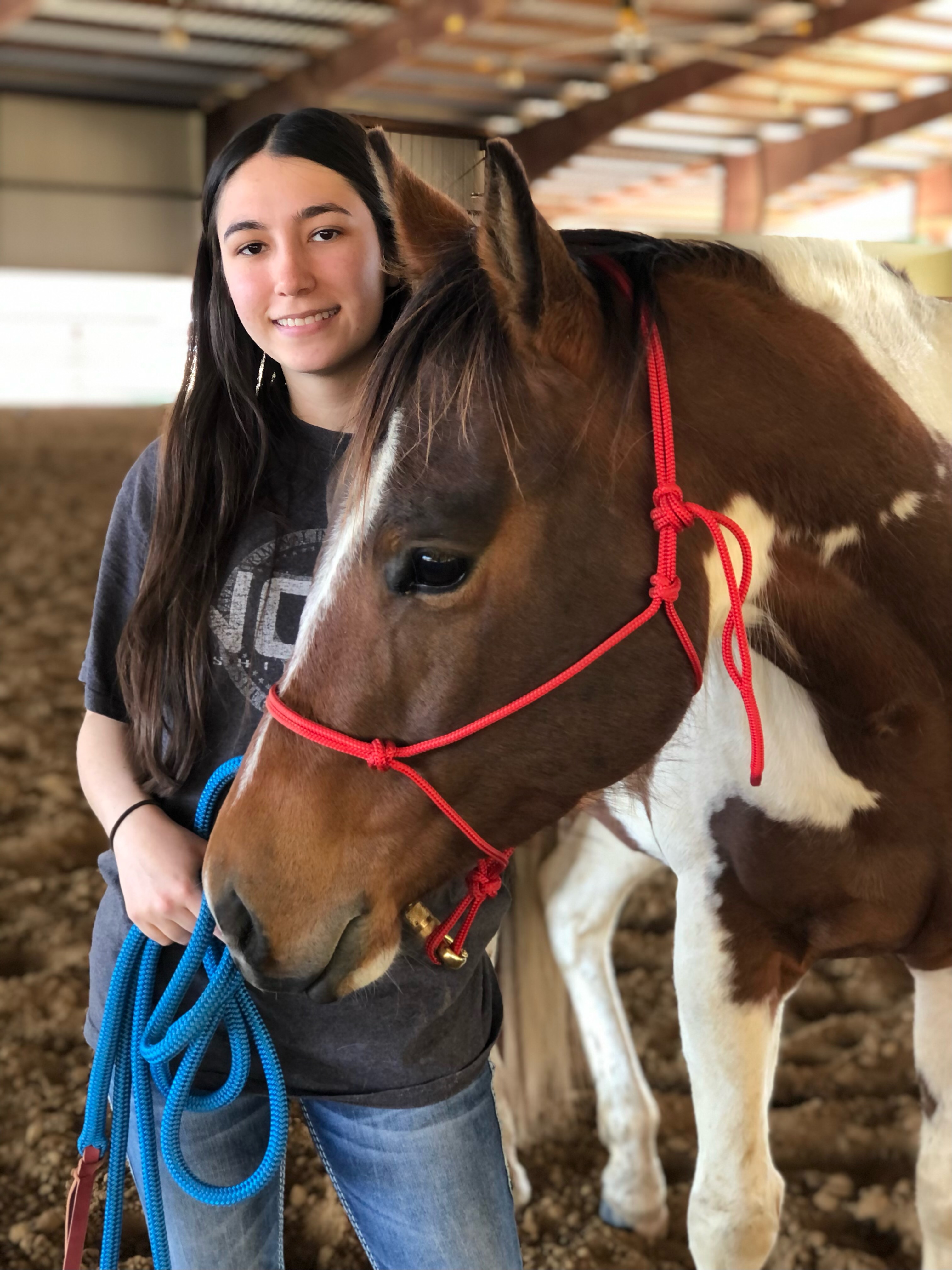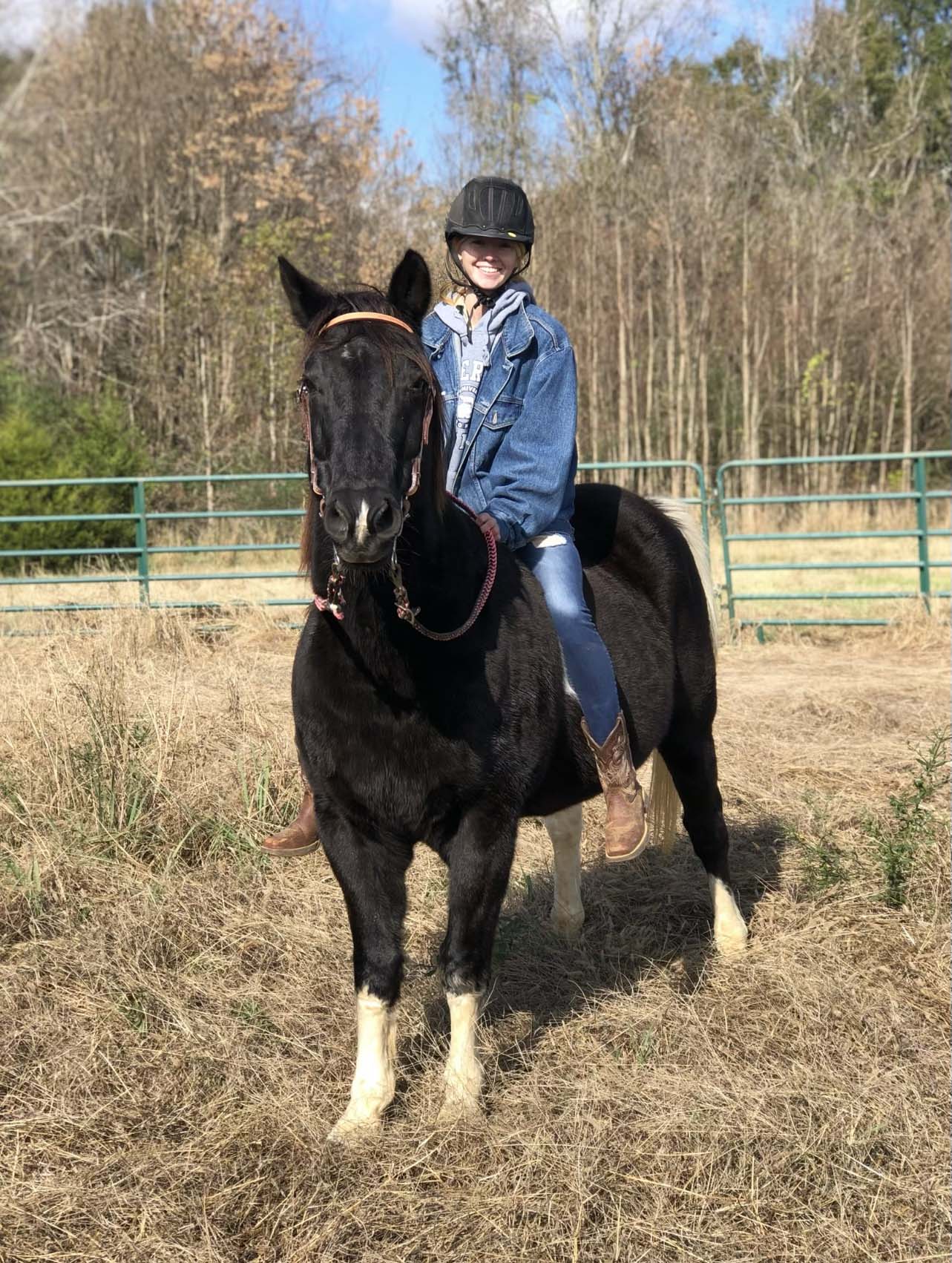
By Amelia Middleton
After Amber Hollis was forced to leave the United States Air Force Academy due to an injury, she felt like all hope was lost — until she joined the Mississippi State Extension Center Veterans Horsemanship Program.
Equine therapy is a treatment method that focuses on the connection between horses and patients to treat several different emotional and physical disabilities. The MSU Extension Center works with drug and alcohol rehabilitation patients, veterans and children with disabilities ages 4-18. The Veteran Horsemanship Program is designed to provide emotional support for veterans and train horses to become accustomed to humans so that they can later be used to work with children.
Hollis said returning home from the Air Force Academy with no future in the military left her with little desire to connect with others when she began school at Mississippi State University. After learning about the Veteran Horsemanship Program through Veterans Affairs, she decided to give it a try. She lost her close network of fellow cadets and friends. Through equine therapy, Hollis said she was able to open up again.
“When you have that guard up that I did, you don’t want to try again,” Hollis said. “The horses were an escape for me, but the more time I spent with them, the more I felt loved and comforted. I realized that if an animal could make me feel loved, then maybe I should give people another chance.”
Hollis battles bipolar borderline personality disorder, and she said her connection with horses made her feel seen. Although horses do not communicate with humans through speaking, horses are similar to humans in social situations. Horses’ behavior can act as a mirror to their rider.
“We don’t communicate through words with the horses, but that makes it mean more for me,” Hollis said. “Horses can’t tell us that everything is going to be okay, they have to show us. With horses, I feel like they react in the same ways I do, sometimes. If I’m having a bad day, I shut off, and horses can do the same when they don’t want to participate in activities.”

Veterans Horsemanship rider Sierra Nicholson said she was skeptical of equine therapy at first, but she needed to find an outlet for her stress.
“It gave me a reason to stay in school,” Nicholson said. “It was an outlet for me to relax. Before I started with the Veterans Horsemanship Program, stress was piling up. I didn’t have a job or many hobbies, and I just felt like I was living the same day over and over again. The more time I spent at the arena, the more happy I was. It turned into something to look forward to each week.”
On her first day of the Veterans Horsemanship program, Nicholson was able to choose a horse based on personal interaction. As the program progressed, she and her horse’s bond grew.
“Everyone has a connection to a horse, so we were able to pick which horse we wanted. “The first time I went out there, all of the horses were let out into the arena, and I was immediately drawn to a horse named Rosa,” Nicholson said. “Throughout the course, we bonded, and I looked forward to my time with her every week.”
Hollis’ horse selection was unique. She missed the start date of the program, so she was able to visit the stables where each horse is kept to choose her horse. Instead of picking from any horse she saw, Hollis said she walked through the stables to find which horse would be the best fit for her. Most horses either backed away or seemed uninterested in her except for one – Roscoe.
“When I walked into Roscoe’s pen, he immediately made eye contact with me and didn’t ignore me like all of the other horses did,” Hollis said. “He walked up to me, and there are no words to describe the feeling of that immediate connection. I looked into his eyes, and I just knew he was my horse, and I think that he knew that, too”
Hollis said she had to build trust with Roscoe because he was sensitive around humans. Although he didn’t have a medical issue, he was reluctant to let people around his right side, so Hollis had to help him overcome that fear. Roscoe was eventually able to move on and work with children, but Hollis said Roscoe was the reason she gained so much perspective from equine therapy.
“Horses are smart, and they can be very intimidating,” Hollis said. “But, they have this softness about them that makes you feel like they know exactly what you’re going through. I always felt like Roscoe wanted to take care of me, and letting him move on was hard. I know that without him, I may have had a completely different outcome.”
Nicholson now works with disabled children through the Therapeutic Riding division. Nicholson said being able to volunteer with a similar program to the one that helped her has been a fulfilling experience.
“Working with the kids adds a layer to my experience,” Nicholson said. “It’s amazing to feel such a connection with not only horses but also the kids. It’s not that they truly need me, but the fact that they want me to be there has helped me so much, and they don’t even realize it.”
Children with disabilities make up a large part of patients for the Extension Center. Volunteer Coordinator Kate Yelverton said some children have learned to sit up on their own and have even said their first words on a horse.
“For children with disabilities, it can help them to build self esteem and confidence, and it works a lot with muscles,” Yelverton said. “If a child isn't able to sit up completely on their own, weeks of working with the horses allows them to strengthen those muscles. We’ve also seen kids say their first words at the center.”
Hollis said she understands why some may be reluctant to try equine therapy, and she encourages those that may be interested to keep an open mind.
“It will only work if you’re willing to let it work,” Hollis said. “It’s the same for every kind of therapy. I didn’t want to talk to people or try any kind of therapy, but when my friends and loved ones told me to give it a chance, I realized it wasn’t working because I wasn’t allowing it to. That’s why I finally gave equine therapy a try, and it’s changed my life for the better.”